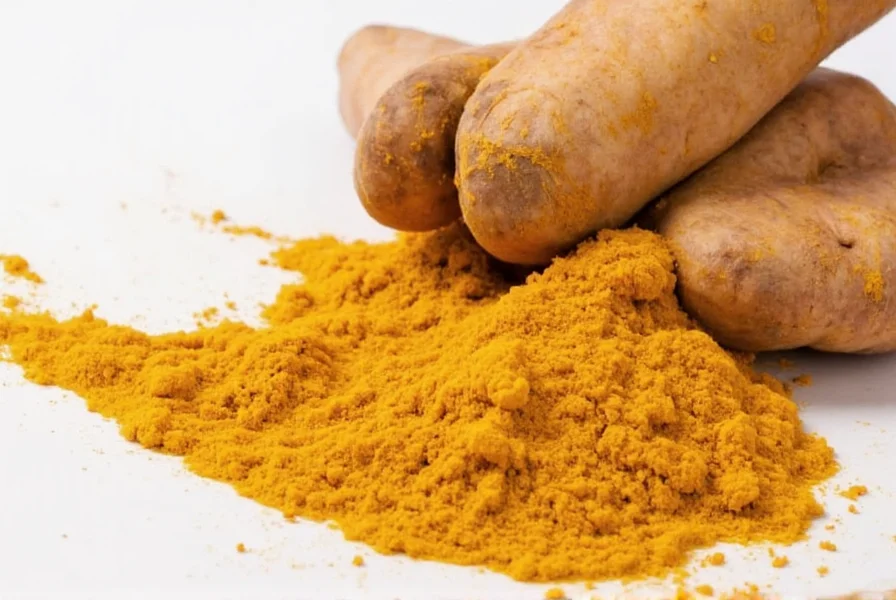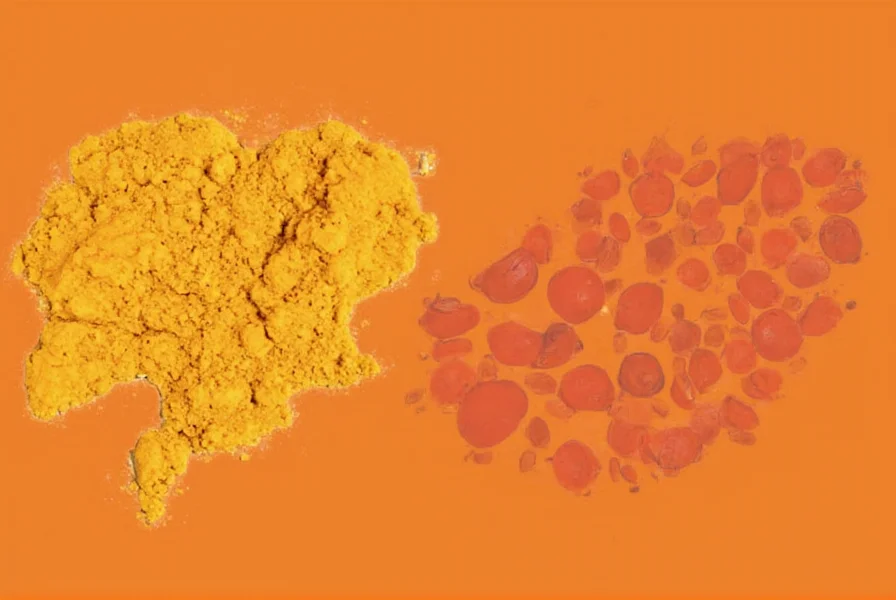For centuries, turmeric has been used in traditional medicine systems for various health concerns, including liver support. Modern science is now investigating whether these traditional uses hold up to rigorous examination, particularly regarding liver health. Understanding the relationship between turmeric and liver function requires examining both potential benefits and possible risks based on current scientific evidence.
The Science Behind Turmeric and Liver Health
Turmeric (Curcuma longa) contains curcumin, which constitutes about 2-8% of the spice and is responsible for most of its studied health effects. Curcumin's potential liver benefits primarily stem from three mechanisms:
- Anti-inflammatory properties - Chronic inflammation contributes to many liver conditions, and curcumin may help reduce inflammatory markers
- Antioxidant effects - The liver processes toxins that generate free radicals; curcumin may help neutralize these damaging compounds
- Enhanced detoxification - Some research suggests curcumin may support the liver's natural detoxification pathways
These mechanisms form the theoretical basis for turmeric's potential liver-protective effects, but how does this translate to real-world benefits?
What Research Says About Turmeric for Liver Conditions
Multiple studies have investigated turmeric's effects on various liver conditions. The evidence varies in strength depending on the specific condition:
| Liver Condition | Research Evidence | Current Scientific Consensus |
|---|---|---|
| Fatty Liver Disease | Multiple human studies show reduced liver fat and improved enzyme levels | Promising but requires larger long-term trials |
| Liver Fibrosis | Strong animal evidence; limited human studies | Potential benefit but insufficient human data |
| Drug-Induced Liver Injury | Several studies show protective effects | May offer protection but not replacement for medical treatment |
| Viral Hepatitis | Limited studies with mixed results | Insufficient evidence for therapeutic use |
A 2022 meta-analysis published in Nutrients reviewed 15 clinical trials involving 1,100 participants with non-alcoholic fatty liver disease (NAFLD). The analysis found that curcumin supplementation significantly reduced liver fat content and improved liver enzyme levels compared to placebo. However, the researchers noted limitations including small sample sizes and short study durations.
When Turmeric Might Not Be Good for Your Liver
While turmeric shows promise for liver health, it's not universally beneficial. Certain situations warrant caution:
- High-dose supplementation - Some case reports link concentrated curcumin supplements to liver injury, particularly at doses exceeding 1,000 mg daily
- Pre-existing liver conditions - Those with autoimmune hepatitis or advanced cirrhosis should consult doctors before using turmeric supplements
- Medication interactions - Turmeric may interact with certain medications metabolized by the liver
- Individual sensitivity - Rare cases of turmeric-induced liver injury have been documented
A 2021 review in Phytotherapy Research highlighted that while culinary use of turmeric appears safe, concentrated supplements carry higher risk of adverse effects, including potential liver toxicity in susceptible individuals.

Practical Recommendations for Liver Health
Based on current evidence, here's how to safely incorporate turmeric for potential liver benefits:
- Culinary use - Adding 1-2 teaspoons of turmeric to daily cooking appears safe for most people and may provide modest benefits
- Enhanced absorption - Combine turmeric with black pepper (which contains piperine) and healthy fats to increase curcumin absorption by up to 2,000%
- Supplement considerations - If using supplements, choose products with standardized curcumin content (typically 95%) and consider doses of 500-1,000 mg daily
- Medical consultation - Always discuss turmeric supplementation with your healthcare provider if you have liver disease or take medications
Understanding the Limitations of Current Research
While promising, turmeric liver research has significant limitations that consumers should understand:
- Most human studies have small sample sizes and short durations (typically 8-12 weeks)
- Many studies use specialized curcumin formulations that differ from common supplements
- Research often focuses on specific populations, limiting generalizability
- Long-term safety data for high-dose supplementation remains limited
A 2023 systematic review in Frontiers in Pharmacology concluded that while preliminary evidence supports turmeric's potential liver benefits, "more rigorous, long-term clinical trials are needed to establish definitive therapeutic recommendations." The review emphasized that turmeric should complement, not replace, conventional liver treatments.
Conclusion: A Balanced Perspective on Turmeric and Liver Health
The question "is turmeric good for liver" doesn't have a simple yes-or-no answer. Current scientific evidence suggests that moderate culinary use of turmeric is likely safe and may offer some liver health benefits for many people. However, high-dose supplementation carries potential risks and should be approached with caution, particularly for those with existing liver conditions.
For individuals interested in turmeric for liver support, the most evidence-based approach involves:
- Using turmeric as part of a balanced diet rather than relying on it as a treatment
- Consulting healthcare providers before starting supplementation, especially with liver conditions
- Being realistic about expectations - turmeric is not a cure-all for liver disease
- Prioritizing proven liver health strategies like maintaining healthy weight, limiting alcohol, and managing blood sugar
As research continues to evolve, we'll gain clearer understanding of turmeric's specific role in liver health maintenance and support.
Frequently Asked Questions
Can turmeric reverse fatty liver disease?
Current research suggests turmeric may help improve markers of fatty liver disease but cannot completely reverse it. Studies show modest reductions in liver fat and improved enzyme levels, but turmeric should be combined with lifestyle changes like weight management and exercise for optimal results. It's not a standalone treatment for fatty liver disease.
How much turmeric should I take for liver health?
For culinary use, 1-2 teaspoons of turmeric daily appears safe for most people. If considering supplements, research typically uses 500-1,000 mg of standardized curcumin (95% curcuminoids) daily. Always consult your healthcare provider before starting supplementation, especially if you have liver conditions or take medications that affect liver function.
Can turmeric damage your liver?
While culinary use of turmeric is generally safe, high-dose curcumin supplements have been linked to rare cases of liver injury. Most reports involve doses exceeding 1,000 mg daily over extended periods. Individuals with pre-existing liver conditions may be more susceptible. If you experience symptoms like jaundice, abdominal pain, or unusual fatigue while taking turmeric supplements, discontinue use and consult a healthcare provider.
How long does it take for turmeric to improve liver function?
Research studies typically show measurable improvements in liver enzyme levels after 8-12 weeks of consistent turmeric or curcumin supplementation. However, individual responses vary based on the specific liver condition, dosage, formulation, and overall health status. Turmeric should be viewed as part of a comprehensive liver health approach rather than a quick fix.
Is turmeric safe for people with cirrhosis?
People with cirrhosis should consult their hepatologist before using turmeric supplements. While culinary amounts are generally considered safe, concentrated curcumin supplements may interact with medications or affect liver metabolism in advanced liver disease. Some studies suggest potential benefits for early-stage liver fibrosis, but safety in established cirrhosis requires medical supervision.











 浙公网安备
33010002000092号
浙公网安备
33010002000092号 浙B2-20120091-4
浙B2-20120091-4